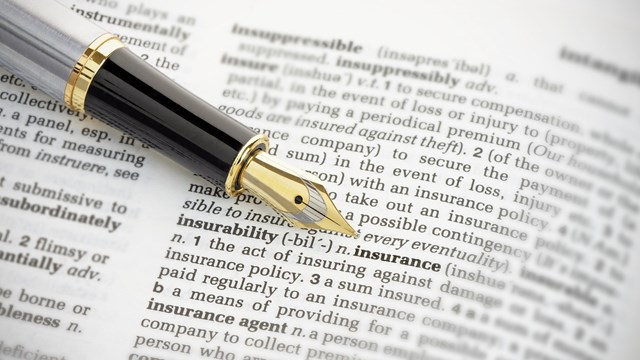Condominium associations, whether housed in a single building or in a sprawling development, provide a reliably cozy and comfortable community in which to live. But this comfort requires vigilance on the part of both board and management to ensure that the various and sundry components up to code, which can feel daunting for those on the more inexperienced side.It should be noted that there is no uniform code of standards to which condo associations far and wide can look to for information. Rather, statutes vary state to state, city to city, and municipality to municipality—so a board must stay abreast of the precise standards that apply to its type of property and the area in which that property resides. Sure, it sounds complicated, but fortunately there are many resources and information outlets to which one can turn for help sorting out the various safety requirements designed to keep multifamily associations code-compliant.
Critical Mass
It would take several pages to enumerate the inspection codes for every state in New England, so let’s focus on one specific area—in this case residential property safety inspections in the greater Boston area—in a way that associations throughout the region may be able to apply to their own operations. According to Richard E. Stern, president of Sutton Management Company, Inc. in North Andover Massachusetts, different required safety inspections are overseen by different governmental bodies. For example, the state oversees those for elevators, which occur annually, while the fire department administers its own inspections at intervals related to the type of building in question—for health care facilities, for example, inspections can be mandated as often as once per quarter. In a condo, alarms and sprinklers will most likely be tested once per year. And the health department regulates pool and septic inspections, conducting one annually prior to a pool opening for the season, and then several random drop-ins throughout the year. A septic system, meanwhile, requires a Title V inspection every two years in a residential property.
Howard Goldman, a partner at Goldman & Pease in Needham, says that, “In Massachusetts, they have a state building code and a state sanitary code. The state sets forth what can and cannot happen in residential units, focusing on conditions deemed to endanger or impair health or safety. These can include a broken toilet, failure to maintain a sewer, failure to provide heat as required, improper ventilation of space heaters… it goes on and on, and can be referenced via Public Health Sanitary Code 105 CMR 410.”
How and When?
As the onus is mostly on an association to stay on top of its property’s well-being and requisite inspections, things can get a little complicated, especially among a board of volunteers, most of whom have full-time jobs, family obligations, and other things on their minds beyond whether the building or HOA is due for an inspection. This is where a diligent and qualified property manager can prove to be a godsend. Indeed, says Goldman, in most cases,the property manager shoulders the burden of ensuring that their client communities are code-compliant, with mandated safety inspections getting done regularly and on time.
In addition to regular inspections—and especially so in the case of larger associations (think 100 units and up)—an association should also commission a reserve study, which is essentially a foundation-to-roof assessment by a specially qualified engineer to determine the age and overall operational condition of the HOA's various systems, and how much money should be put aside for major repairs or replacements. According to Goldman, setting up such a study also usually falls to the manager, who will often accompany the engineer in his or her examination of the property.
Stern adds that property managers can stand as the shield between an association and potential fines or penalties for missing a mandatory inspection, or for falling short of required standards of safety. An on-the-ball manager is uniquely positioned to protect their client communities from costly fines and potential liabilities. “Because inspections are done annually, and property managers regularly walk the property, violations are rarely levied,” he says.
When it comes to scheduling inspections, Stern explains that “Elevator inspections are automatically slotted for the one-year anniversary of the previous inspection. An association has to submit its inspection fee prior to that date. Once that paperwork is in, the state will then confirm the inspection. Even if that date is more than a year from the prior inspection, the last year’s permit is still valid, granted the state has received the application fee. For the other inspections, we keep a master calendar for the property that has all the required dates. We also require inspection companies, as well as alarm and sprinkler companies to keep track on their end, and schedule subsequent inspections automatically. So between the property manager and the individual inspection agents, inspections do not get missed.”
Professional Help
Outside of the fire department and specific governmental regulators, as well as the aforementioned property managers, there are private residential inspection companies that can be called upon to perform myriad functions in condominium communities. Jim Brock, president of Boston Home Inspectors operates one such firm.
“The majority of the inspections which I perform are for buyers who are looking to purchase a condo,” he explains. “They’re looking to ensure that their homes are safe, for items that have not been installed per manufacturer specification, or per code, and we’re examining various safety items—everything from railing height, that windows next to stairways are made of safety glass, that kitchen countertops are installed with GFI outlets. We check every water source to verify that the ‘hot’ temperature is no higher than 120 degrees, lest someone—especially a child —scald him- or herself. We make sure that toilets are properly secured to the floor, that vanities are secured, lest a child attempt to scale one and injure theselves. We check for carbon monoxide, adequate ventilation… any number of things.”
Brock says he’ll often be called every three or four years to help homeowners associations or condos get a clearer picture as to where they should place their immediate and long-term focus – and financial resources. Whether that means painting, adding a new roof, increasing lighting in stairways, installing new railings, or some other very important business, Brock visit the property, assess its strengths and vulnerabilities, and make recommendations to the owners and administrators so they in turn can make informed decisions about where to invest the most time and moeny.
And there are many sets of standards to which Brock adheres—he cites HUD, the building department, home inspection law, fire and electrical standards, to name but a few. Minimum height requirements for railings on balconies and terraces, GFI outlets, and sufficient lighting in stairways must all be maintained to a government standard, and should be paid particular attention. That said, a lot of what Brock does, as he puts it, "comes from experience and common sense."
Aside from the three areas mentioned above, Brock also urges associations to give extra care to decks, porches, sidewalks, basement and exterior stairs—anywhere that could create a falling or tripping hazard. And should a board member or owner notice a loose rail, or deterioration or separation in wood fixtures—anything that looks amiss, really—they should speak up, and maybe accelerate that three-to-four year inspection benchmark. Especially in New England, where winter weather can inflict a significant burden on structures, there are variables that can accelerate deterioration. “Heavy snow can be quite detrimental,” he says. “Ice dams can cause mold, especially in basements, but even in units, around windows where water has seeped into a wall cavity, or where people have curtains along a wall that they rarely look behind.”
In contrast to tightly-knit, more urban communities where the city has rigorous inspection-related laws in place as a concern for public safety, New England associations have a greater burden to police themselves. A reliable property manager can make all the difference here, keeping track of the myriad dates and checklists to which the association must adhere. The primary take-away here is that frequent walks of the property, noting anything out of the ordinary, and reporting it in a timely manner is imperative; should something fall into such disrepair that property is damaged or an injury takes place, the resulting fine or litigation costs can be devastating for any community. By making sure your trustees and management are on top of required inspections, you can keep residents and guests safe, protect your investment, and stay on the right side of the law, regardless of what part of New Englad your community calls home.
Mike Odenthal is a staff writer and reporter for New England Condominium magazine.










Leave a Comment